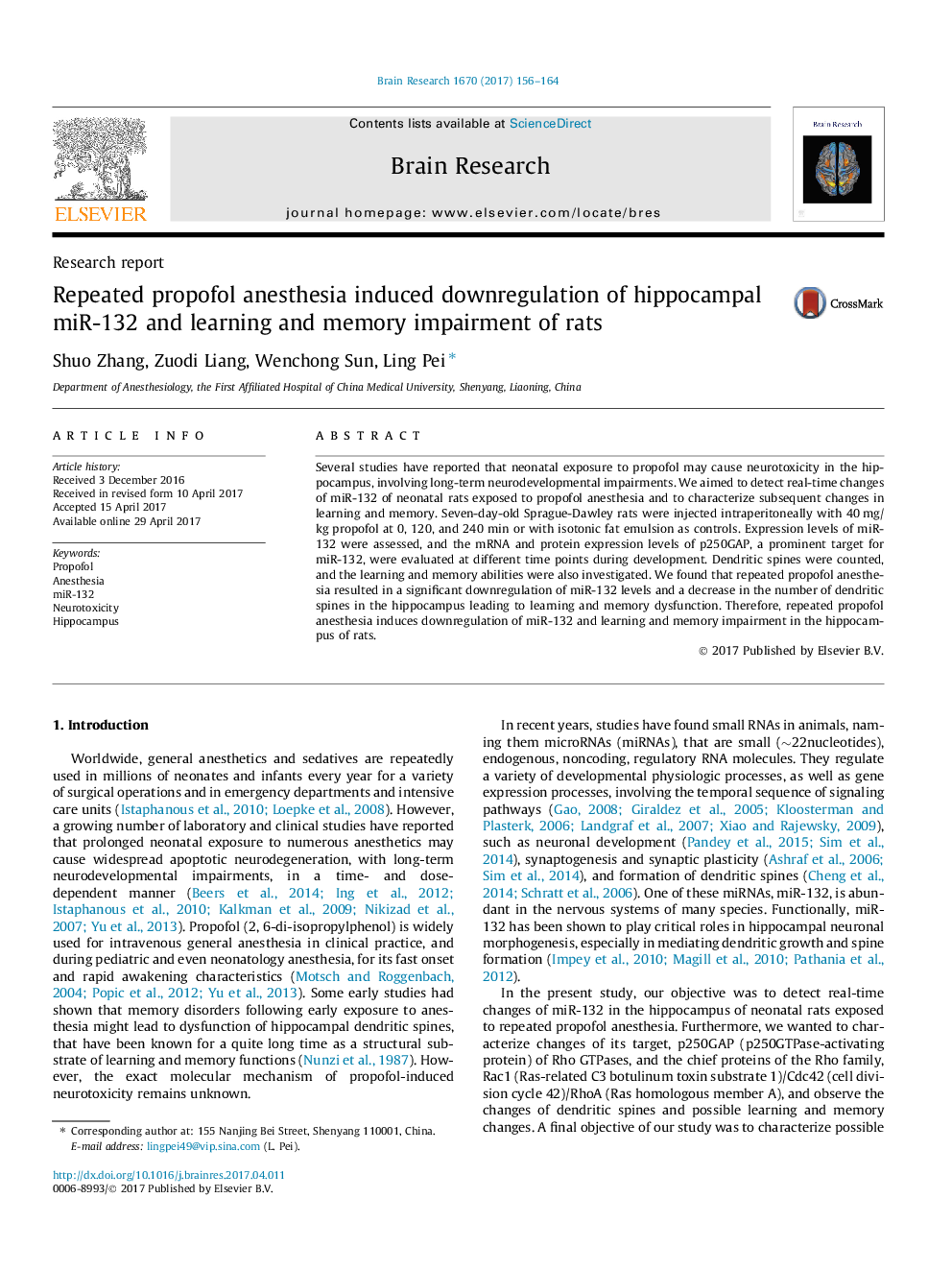| Article ID | Journal | Published Year | Pages | File Type |
|---|---|---|---|---|
| 5736688 | Brain Research | 2017 | 9 Pages |
â¢Propofol causes sequential changes of miR-132 and its related protein of hippocampus.â¢Neonatal exposure to propofol causes neurodevelopmental damage.â¢Propofol causes a decrease in the number of dendritic spines in the hippocampus.
Several studies have reported that neonatal exposure to propofol may cause neurotoxicity in the hippocampus, involving long-term neurodevelopmental impairments. We aimed to detect real-time changes of miR-132 of neonatal rats exposed to propofol anesthesia and to characterize subsequent changes in learning and memory. Seven-day-old Sprague-Dawley rats were injected intraperitoneally with 40Â mg/kg propofol at 0, 120, and 240 min or with isotonic fat emulsion as controls. Expression levels of miR-132 were assessed, and the mRNA and protein expression levels of p250GAP, a prominent target for miR-132, were evaluated at different time points during development. Dendritic spines were counted, and the learning and memory abilities were also investigated. We found that repeated propofol anesthesia resulted in a significant downregulation of miR-132 levels and a decrease in the number of dendritic spines in the hippocampus leading to learning and memory dysfunction. Therefore, repeated propofol anesthesia induces downregulation of miR-132 and learning and memory impairment in the hippocampus of rats.
